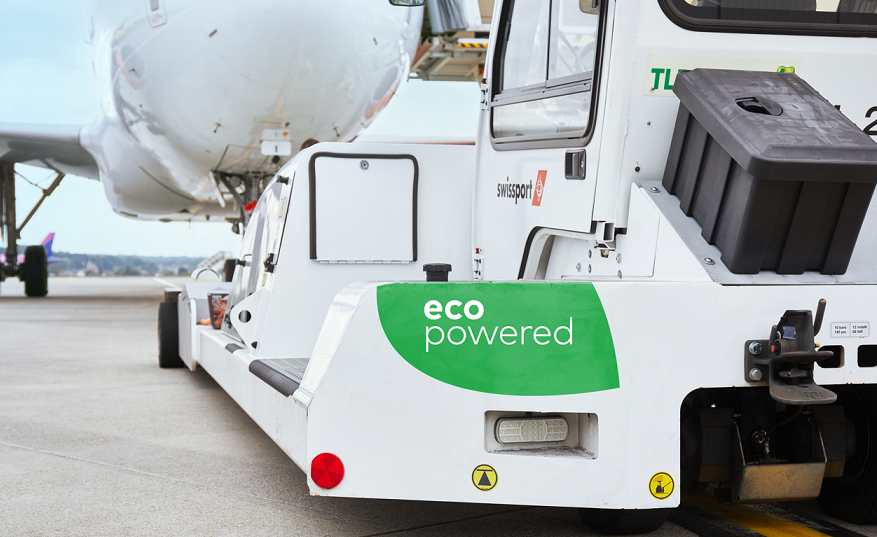Swissport commits to net-zero carbon emissions by 2050
08 / 12 / 2023

Photo: Swissport
Swissport aims to decarbonise its operations and supply chain to achieve net-zero carbon emissions by 2050.
The handler intends to reach this goal through a transition pathway addressing Scopes 1, 2 and 3 carbon emissions—categories introduced by the Greenhouse Gas (GHG) Protocol.
The company is also committing to both material near-term carbon reduction and net-zero targets by 2050 through the Science Based Targets initiative (SBTi).
“Setting a target for net-zero emissions is of utmost importance for Swissport,” said Warwick Brady, president and chief executive of Swissport.
“Addressing climate change head-on is the most significant challenge of our time. In committing to targets which will be validated through the Science Based Targets initiative, Swissport makes a meaningful contribution to securing a sustainable future for the planet and for our business.”
The electrification of its fleet of ground support vehicles operating at some 300 airports globally is the backbone of Swissport’s efforts to reach net-zero carbon emissions.
In 2022, Swissport announced plans to increase the share of electric vehicles to at least 55% of the total motorized fleet by 2032.
At some Swissport locations, this is already achieved: for example, after the renewal of the company’s forklift fleet in its Finland cargo operations, 98% of its fleet will be electric.
In parallel, Swissport is working with airports to coordinate and expedite the implementation of the required infrastructure such as charging stations.
On the policy side of greening operations, Swissport has established a near-term target for reducing Scope 1 and 2 carbon emissions by a minimum of 42% by 2032.
To track progress on emissions targets, the company launched a comprehensive emission reporting fully aligned with the standards of the Greenhouse Gas Protocol.
The reporting includes not only Scopes 1 and 2 but also encompasses all Scope 3 carbon emissions that are material to Swissport’s business operations.
Swissport is also participating in the SBTi initiative, where companies commit to defining and implementing targets that are consistent with limiting global warming to 1.5°C above pre-industrial levels.
The ground handler is pledging to submit its targets and undergo a validation process within the next two years. Furthermore, Swissport intends to disclose a comprehensive transition pathway that addresses the challenges posed by climate change.
Additionally, Swissport is implementing key sustainability measures across its operations as a part of its ESG roadmap.
This includes enhancing its environmental management system to align with ISO 14001 standards.
For example, Swissport is set to get rid of all plastic tableware at its Aspire Airport Lounges by 2025.
Additionally, the company has several initiatives to reduce the consumption of foil wrap in its air cargo centres across Belgium, Germany, and Finland, where 100% of plastic foil is now collected and repurposed to wrap new pallets.
Swissport announced goals for the decarbonisation of its operations in September last year.














